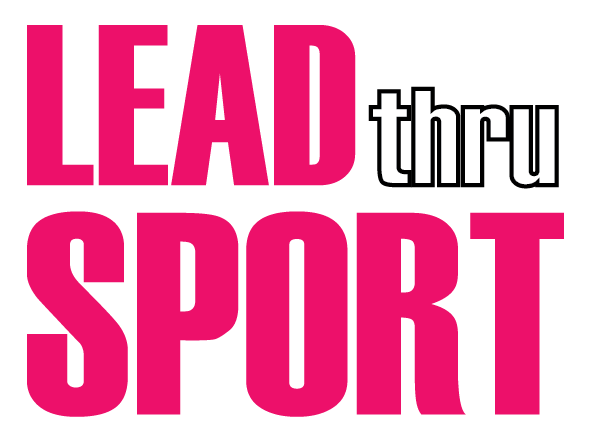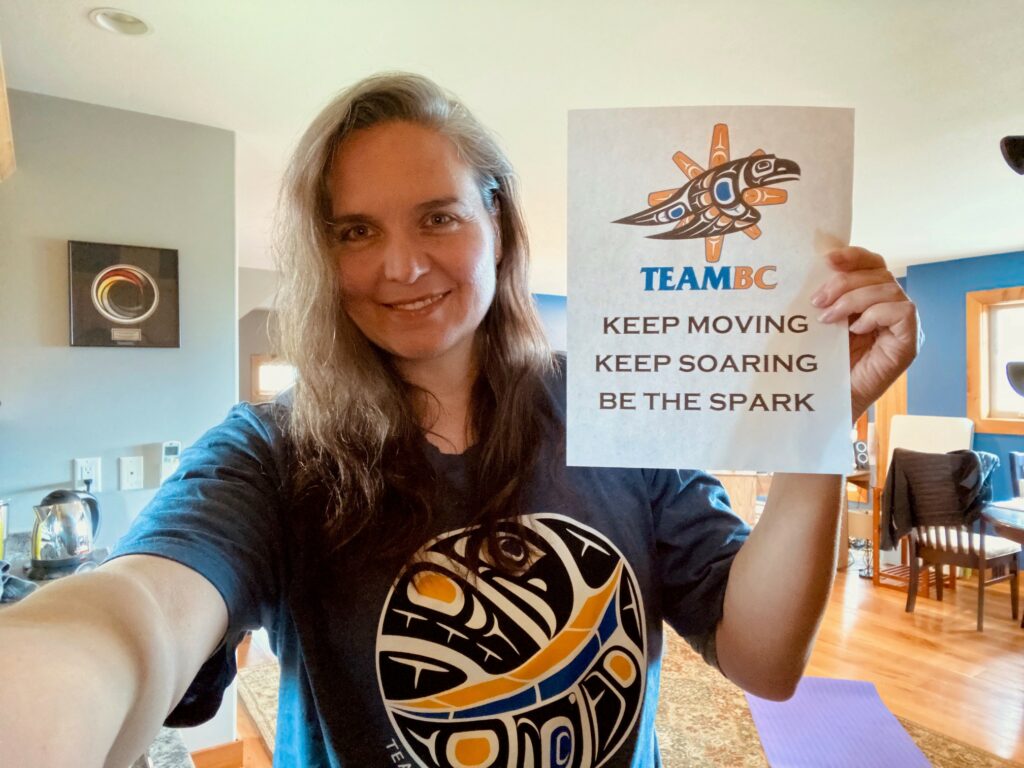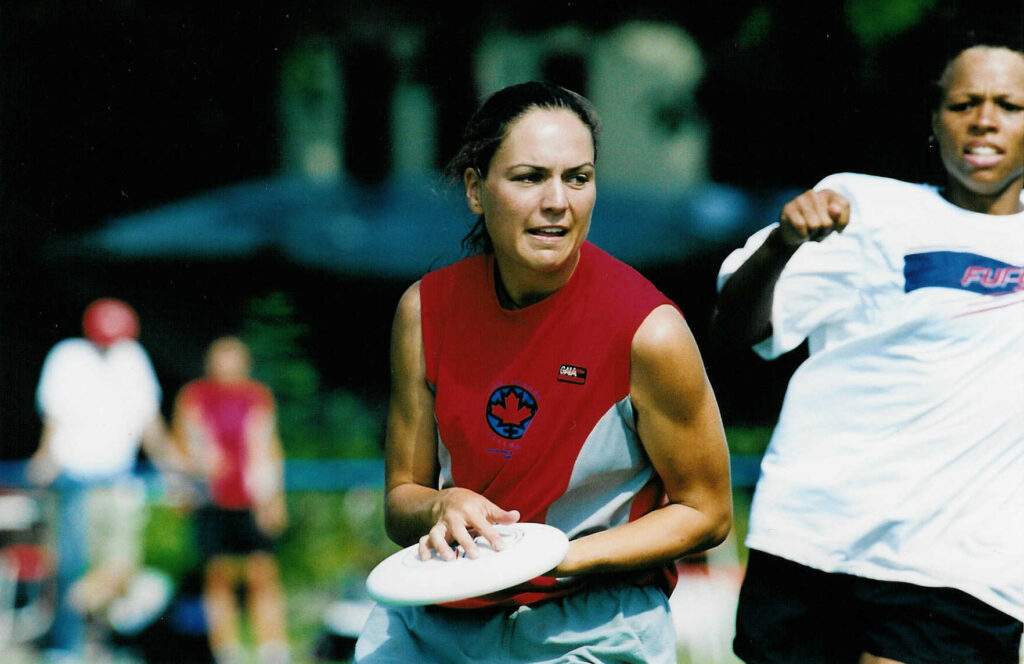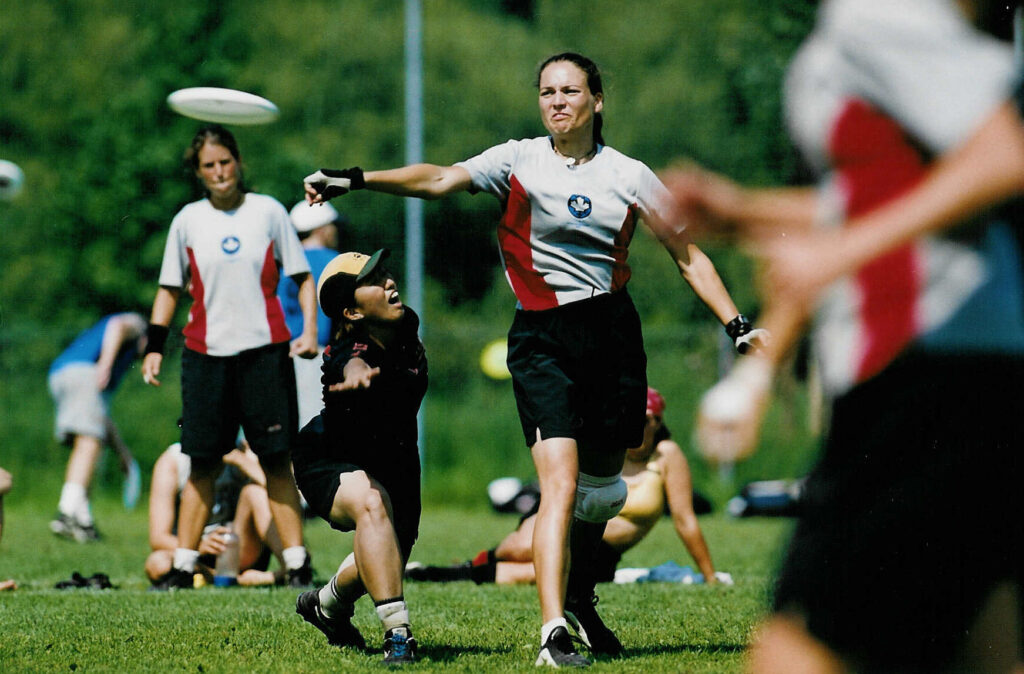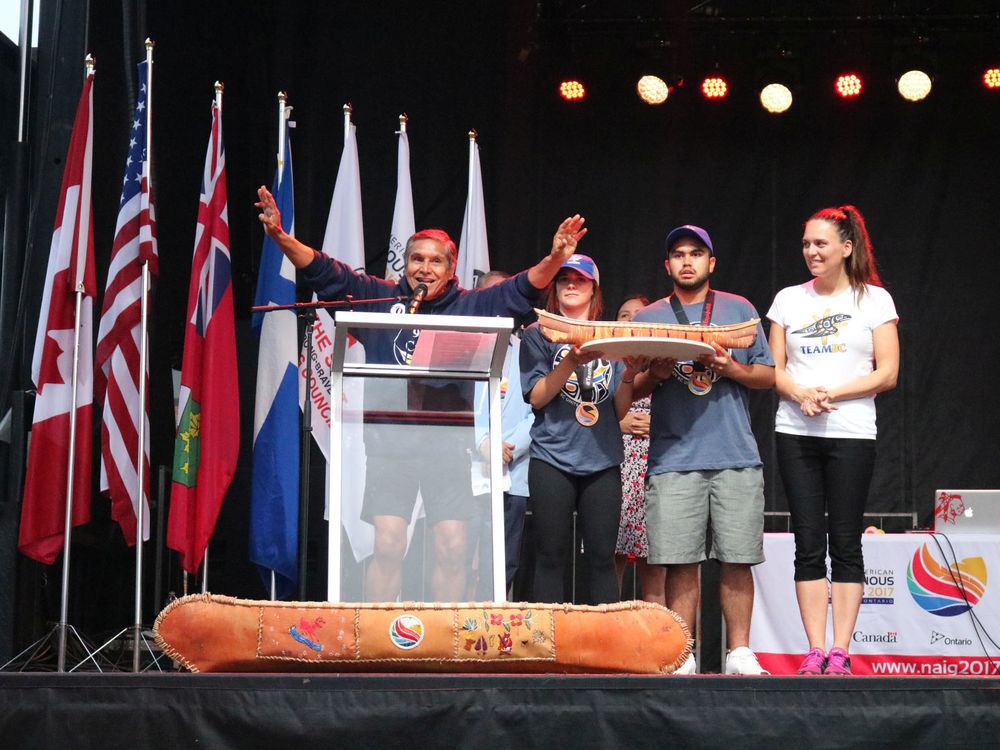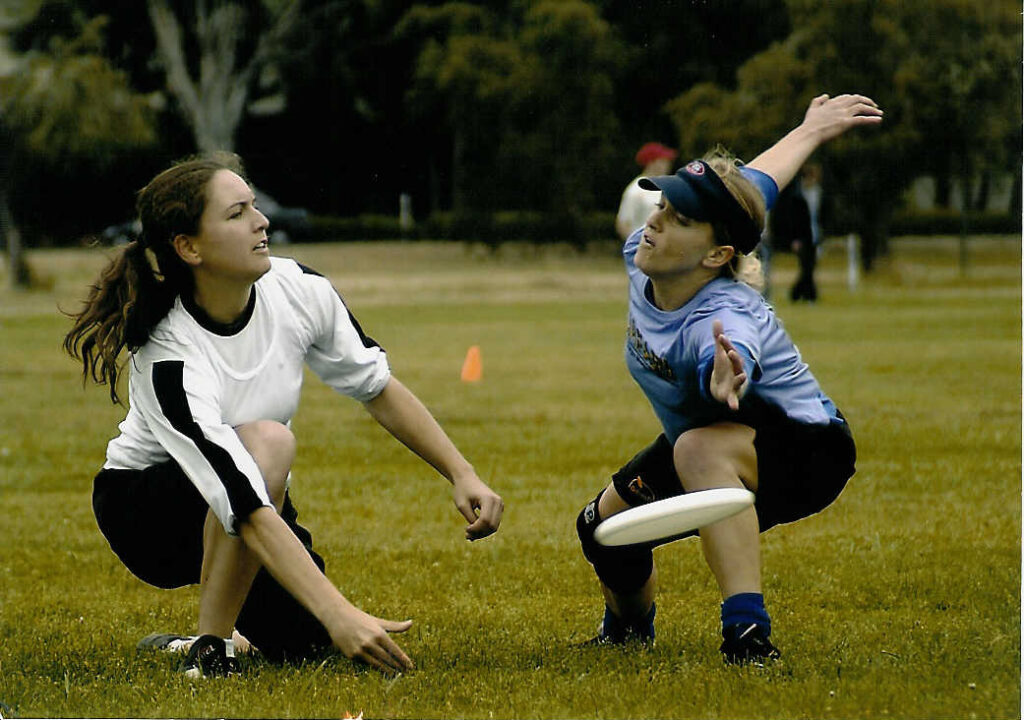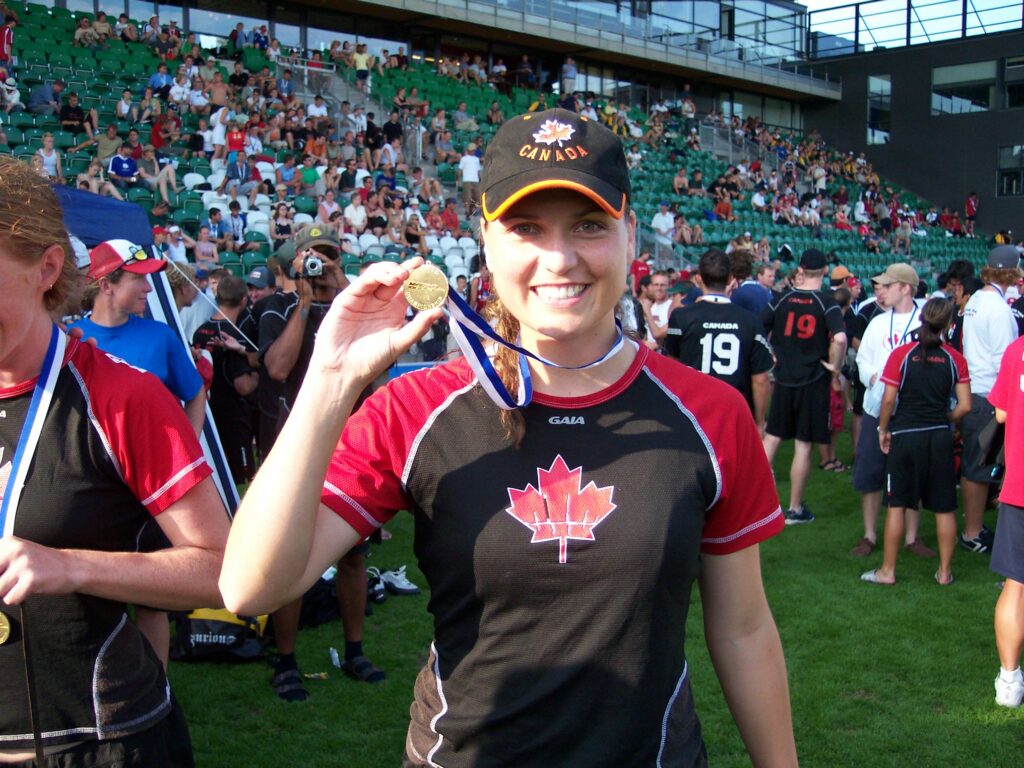
WEEK #23: LARA MUSSELL
Please tell us a little bit about yourself.
I was raised both in Chilliwack and in the urban setting of Vancouver in beautiful British Columbia. With fantastic sport role models in my parents and older sister, I enjoyed learning and competing in all kinds of sports as a kid… softball, gymnastics, curling, basketball. The sport of Ultimate Frisbee captured my attention in grade 12 when BC Ultimate’s outreach program came to my high school to introduce the sport to our school. I had the opportunity to play in the first provincial High School Ultimate Championships and pretty much didn’t look back from there.
I began playing competitively with a touring team shortly after high school and my competitive run included helping lead UBC’s Varsity Club Ultimate team enjoying three national championships as a captain with the team. I played with the Vancouver women’s club team known as Prime (since transitioned to Traffic) and thanks to our team’s accomplishments, Prime was inducted into the Ultimate Canada Hall of Fame. I have also competed in 4 World Championships for Team Canada in the sport of Ultimate, winning 2 gold and 2 bronze medals. I was proud to have served as a co-captain of Team Canada women’s team in 2004 with an amazing crew of strong dynamic women leaders.
Off the field, my goal was to have a career working in the sport sector. I pursued a BKin in Sport Management from the University of British Columbia where I graduated as a Wesbrook Scholar. I later completed an MBA at Simon Fraser University. My career in sport has included working with UBC’s Department of Athletics & Recreation, the Air Canada PGA TOUR Championship, and the BC Sports Hall of Fame & Museum. Proud of my Sqwá First Nation (Stó:lō/Pilalt) ancestry and a dedicated athlete, I was humbled to be awarded Canada’s National Tom Longboat Award for Female Indigenous Athlete of the Year in 2005. It was at this point, I felt a calling to shift my sport career towards Indigenous sport and youth. I enjoyed five incredible years working as Project Manager, Aboriginal Sport & Youth, for the Vancouver Organizing Committee for the 2010 Olympic & Paralympic Winter Games (VANOC). And now, I feel blessed to be working as the Director of Sport with I·SPARC (Indigenous Sport, Physical Activity and Recreation Council for BC) and have been with I·SPARC this past decade filling my cup nearly everyday by helping to create and support sport opportunities for Indigenous youth across BC.
I was inducted into the Chilliwack Sports Hall of Fame in 2016 for achievements in and contribution to sport and have served as an ambassador for viaSport’s #LeveltheField campaign that promotes gender equity in sport. I continue to be engaged as a volunteer for the BC Sports Hall of Fame & Museum as a member of the Board of Trustees. While no longer playing competitive ultimate, I enjoy being active for life enjoying golfing and curling and bike-riding. I know from first-hand experience that sport is good medicine for the body, mind, and spirit! This is what drives me to work and give back to community where I can.
What is something you’re proud of that is outside of sport?
Since 2014, I have served as an elected Councillor for my First Nation and was elected as Chief Councillor in 2020. As the elected Chief for Skwah (Sqwá) First Nation, I am humbled and honoured to fulfill this critical role together with our Council. I am the first female Chief for our community since my grandmother was elected in 1959 and my father is Sxela’:wtxw till, the late Chief Roy Mussell. I am definitely feeling the weight of the role and proud to be working together with the rest of Council and the community to live and work together in a good way (“Aylexw qas yóyes sq’eq’ótel lhe’á te s’éyelh – Living and working together in a good way”) to develop, build, and sustain a healthy, safe and self-sufficient community.
What lessons did you learn in sport that can be applied to your daily leadership?
A life lesson I’ve learned through sport is that positive results and successes don’t come without hard work, dedication and perseverance. I’ve found it to be so true that “it is the things we work hardest for that will reward us the most.” Sport has taught me so much about what it means to strive for excellence both on and off the field. One of the greatest lessons I’ve learned playing team sports and that I try to apply to daily leadership is the value of a strength-based approach to teamwork.
“The strength of the team is each individual member. The strength of each member is the team.” Phil Jackson
What advice do you have for parents, coaches or sport administrators to improve inclusion in sport?
Inclusion doesn’t end with ensuring diversity in sport programming. We as sport leaders, coaches, or parents can help create welcoming, safe, and inclusive environments through fostering mutual understanding and respect and creating a sense of belonging among our athletes and youth. In designing sport programs that create a culture of belonging, some of the things leaders can reflect on include: how does your team or organization celebrate differences, identifying divisive vs. inclusive behaviours, and taking a holistic approach to program design that sets out to nurture the physical, mental/emotional, spiritual, and cultural needs of athletes.
5 words that best describe me are:
PATIENT | CALM | CARING | HARDWORKING | LOYAL
